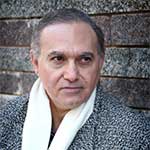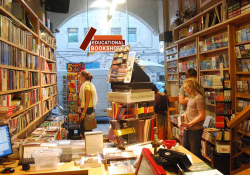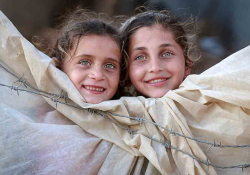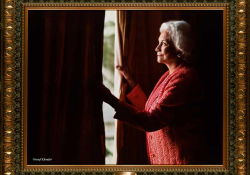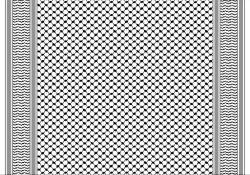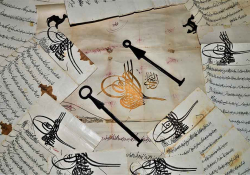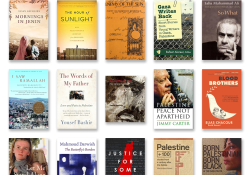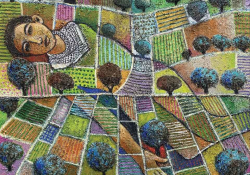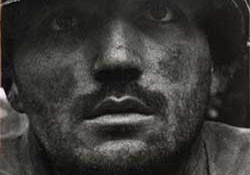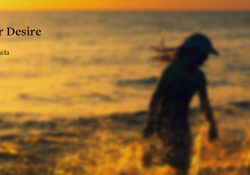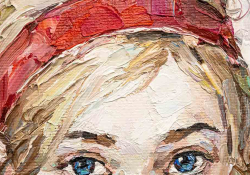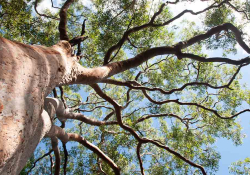Jerusalem: The Shepherdess
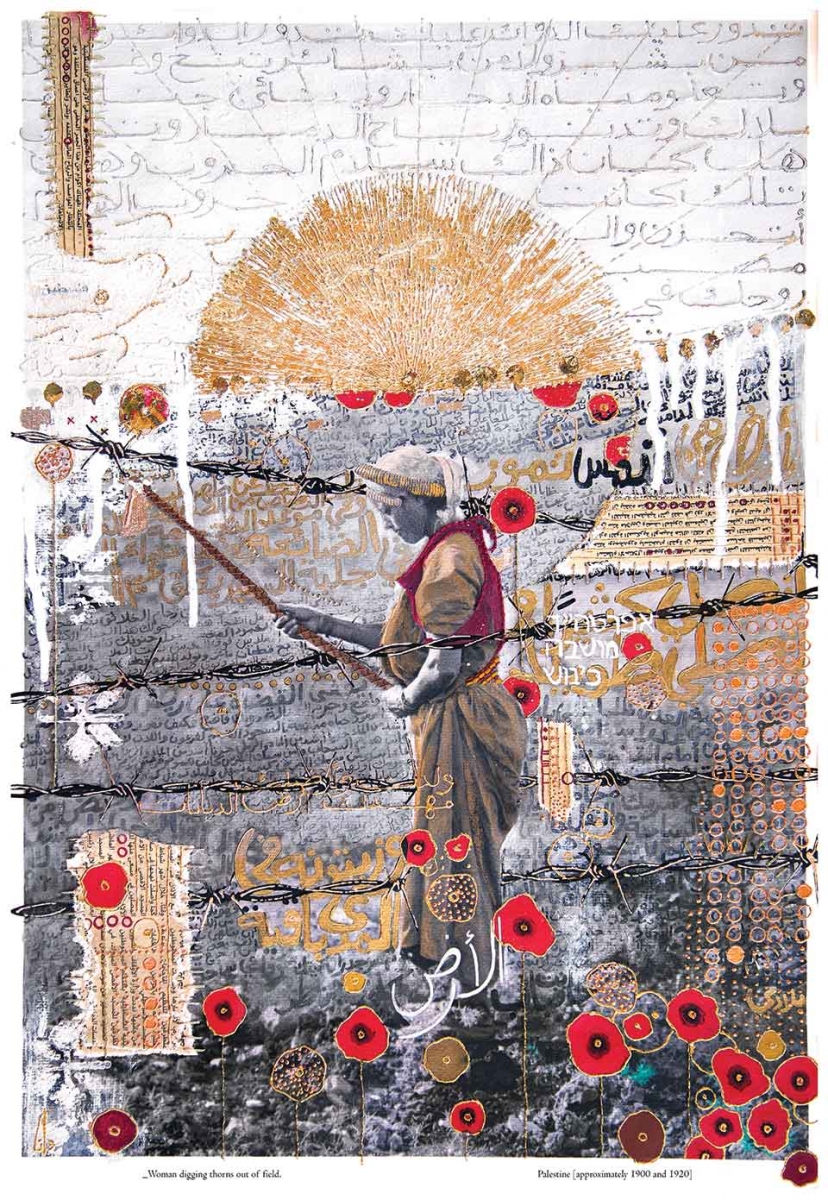
In the following voyage of self-discovery and reflection on humanity—excerpted from a forthcoming book—the author encounters Jerusalem, personified, on the Mount of Olives.
Sometimes Jerusalem
is too much Jerusalem.
It is not that humans like war,
they are just unfaithful to peace.
I come to Jerusalem to be with my amour. I come to dance with her divine spirit. The glow of youth is behind me, and the madness of humankind is still a mystery to me. Deeply troubled by the course of the human race, where insanity stretches the envelope of reason, I still see under the dome of heaven a world that is barbaric, selfish, and ungrateful. The daily depressing news pierces its claws into the skin of my soul; warfare in countries, outrages of injustice, protests in every language, tyrants crushing freedom, refugees at borders, poverty in shadows, and the seeds of peace and happiness tossed to the farthest fringes of the world. When my simple heart is ravaged and in need of deep virtue, I come to my beloved city to imbibe from her rich wells and wise fountains.
Mystified by the matrix of humanity, I shed all my skin, address my heart to adventure, and take my journey to Jerusalem. As I prepare for my excursion, people try to force their biased opinions upon me, but I refuse to carry a canvas strongly colored by others. For I never desire to only be a connoisseur of a cause, but a connoisseur of humanity. I want the spirit of this majestic city to seize my being and throw me into the accented fabric of humanity. I shall venture into my winding and arduous inner soul, exploring the tendrils of life. I need to feel myself by myself. This is a voyage of self-discovery and a reflection on humanity through my pilgrimage to Palestine.
I travel to Old Jerusalem with a balanced air and tabula rasa. I arrive with fresh thoughts and an overheated imagination. Seen from a distance, my gaze floats over her endless vistas and unfolding hills. Lingers over the rooftops of homes and holy places. Hovers about the magnificent minarets and church spires that loom with pride in the sky. The great wall frames the Old City with eight gates for access; the Damascus Gate is the most magnificent and busiest. None of the gates carries a female name, except Bab Sitt Miriam Gate, which the Palestinians named out of respect for Mary, mother of Jesus. The Old City consist of four quarters: Muslim, Jewish, Christian, and Armenian. Behind these walls is a metropolitan mosaic with invisible borders between neighborhoods; an ancient city full of exciting Oriental bazaars, bustling lives, holy places, native inhabitants, visitors, and tumbling dominoes of stairs upon stairs upon stairs.
In my fascination, I dream of Jerusalem as a glowing goddess. She comes with all her dazzling beauty and stands only an olive away from me. I am Lady Jerusalem, she says,
welcome to my city. I bring heaven to earth for people to experience. I shepherd them toward their own desires. I shall hover over you and keep you safe. You shall be intoxicated with her divine beauty and find the flowing light of revelation. Roam my city, feel the pulse of her happiness and sadness, but free her from the past dust of violence and the gray ashes of conflict. Reveal her truth to your circle of friends.
Then she gently says goodbye to me and fades away beyond the horizon, yet her spirit seeps deep into my heart and blossoms luxuriously.
I say to myself, write your diary every day; an empty page is an empty day. I shall capture images with beauty, what I see with truth. So come, come to the land of infernos and legends, where alleys chase alleys, questions ask questions, massacres invite massacres, souls devour souls, and Gods tussle with Gods. Come with me, come to a land where we can walk the liquid streets and pluck poetry off the trees.
In this vibrant city of the Gods, my feet are elated to escort me swiftly, but I tame the seductive streets. First, I see every mortal soul roaming Jerusalem, then I see the immortal Jerusalem roaming in every soul. I spend my days strolling leisurely about the city. The sheer abundance of her beauty, the traces of her history, and the alluring richness of her narratives overwhelm my eyes. Money does not fashion the spirit and majesty of a city; it takes people with vision, pride, and a love of elegance. It takes poets, artists, and slow simmering centuries to create charming ambience. In nowhere else but Jerusalem do my days drop away so delightfully.
The Old Jerusalem of ancient days dwells next to the New City with its modern architectural design. She pleas for a shield against modernity to keep the glowing air of past time. The Old City teems with history while the New City teems with merchandise. Some visitors expect to find all of Jerusalem like the Old City but instead find a contemporary one. Every generation meddles with their inheritance—sometimes damaging it and sometimes enriching it. Many people become outraged by any alterations, for any change feels like a betrayal to their ancestors, religion, or culture.
I walk through Old Jerusalem and see people carrying the heavy burden of life on their faces, where everyone believes their trouble is the heaviest. People’s tongues are mostly tame. Their voices can sometimes be loud but drop to a hush as they whisper about other people or politics. Some engage in loud, fierce arguments, which they consider normal conversations, where both sides part ways believing they are right. Old age carries pride and prestige to where they receive the red carpet of respect. Some are hunched down, tottering on their staffs and carrying painful accounts. Some have harsh faces from the perpetually violent winds of colonization that sweep through this land. Nevertheless, most of the people gracefully continue living, loving, and laughing as if they were the happiest kids in the zodiac.
Wherever travelers roam in Jerusalem, they sense a volcano throbbing beneath their feet, like walking on a thin crust above scorching lava flowing beyond the boiling point that can erupt at any moment, where every fist is ready against another fist. Soon, Jerusalem becomes stones and bones, misery and victory, skins and skulls, eyes and eyes. Many are natives, while others are not denizens of this city. While many have no desire to live together, alas, all must tolerate one another. It is an everlasting living paradox.
As long as there is life, there will always be Jerusalem, and as long as there is Jerusalem, there will always be jealousies, and as long as there are jealousies, there will always be blood.
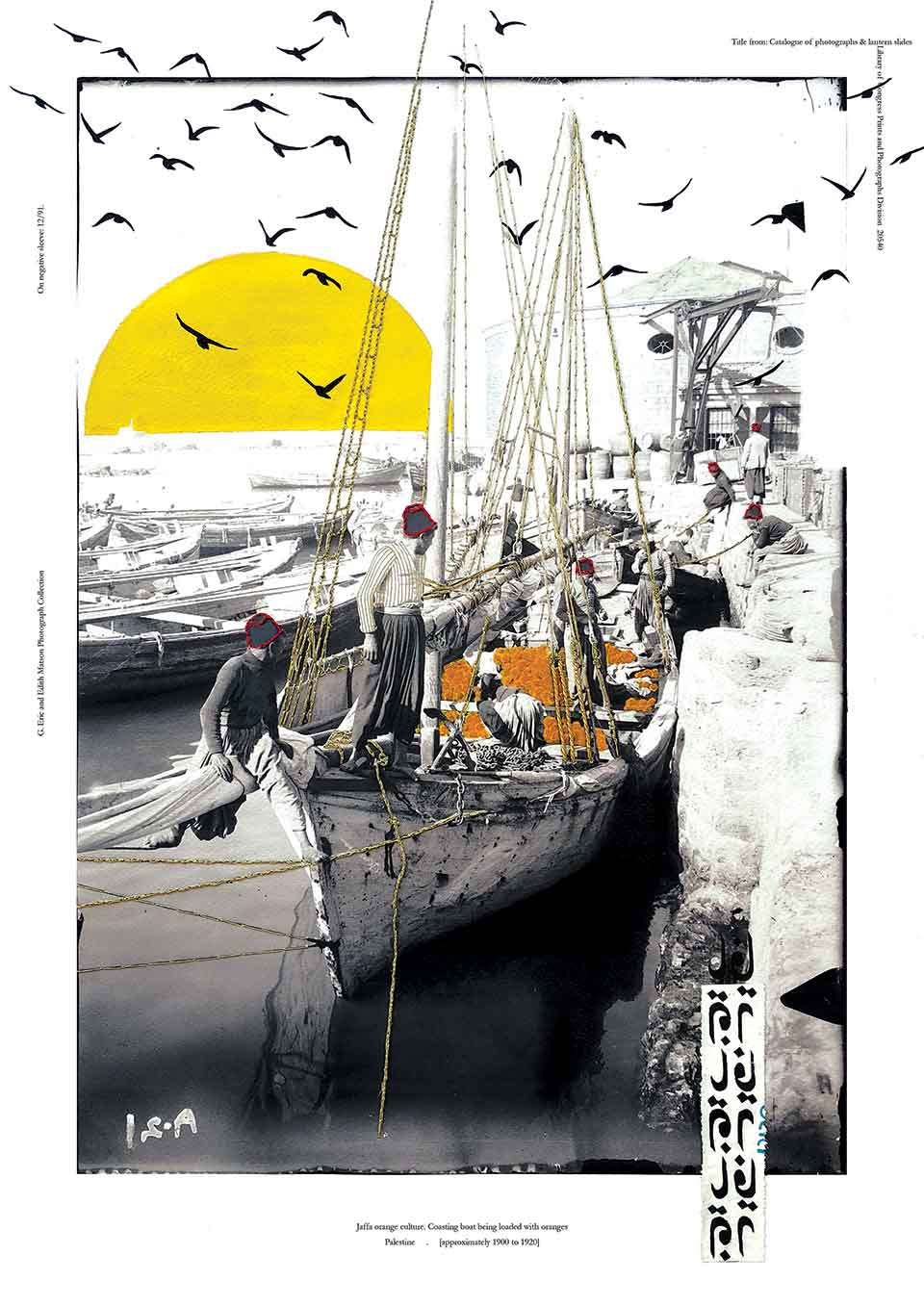
■
Up close in Jerusalem, one sees the colonized voices submerged, while the colonizer’s voices are privileged. The colonized natives are called terrorists, while the colonizer terrorists are called citizens. The colonized souls sleep painfully in refugee camps, while the colonizers sleep peacefully in stolen homes. The foreign colonizer has all the rights, while the colonized natives have no rights. And beneath the crest of this noble land, the ashes of the powerful and powerless are all mixed together; the voices of the deities and laities breathe no more.
Beneath the crest of this noble land, the ashes of the powerful and powerless are all mixed together.
While war belongs to the day and sun, religion belongs to the night and moon. I feel Jerusalem is under both a military and a religious colonization, where politics is their spouse. The art of politics is to display the army’s malicious actions with romance and heroism, while commanding religion to turn up the scorching furnace of fear. As I travel from the bright light of free nations to the dim light of a colonized nation, my heart trembles and totally rejects it. The notion of colonization exasperates me like burning acid suddenly poured into my heart.
Anytime one takes ethnic cleansing, checkpoints, illegal settlement, an apartheid regime, kidnapping children, separating families, collective punishments, and the like, then grinds them all up into a frying pan of ideology over a raging political fire, the result is colonialism. For colonialism not only symbolizes a single evil vice; it symbolizes all vices.
For the love of liberty, I would rather drink poisonous hemlock in freedom than sweet water in shackles; for the most lavish heaven in bondage is hell, and the most savage hell in freedom is heaven.
Politics and religion are two intimate lovers intertwined tightly together. If one ran a sword between them, one would not know who suffers. Religions are residents of this world, and even with all the wisdom of heaven, they still cannot prevent their political desire from dominating others. Stand in the midst of each religion, and one will be drenched by divine language and charmed by oracle’s fire. Yet at any moment, alas, when politics comes along seeking an affair, religion runs out to meet him and sins with her lover.
Heavens and humanity have no worse enemies than those who adopt religion as a means for war and violence. The Holy Scriptures are not miswritten but misinterpreted. They seduce hearts of men and women to kill by selecting verses from their holy books to justify their criminal actions. They confuse nationalism with religion and grow drunk with power and control. Power inflates ego, convincing zealots that they have the privilege to do whatever they desire, which bears no relation to their rights. They see people as rivals to plunder and wallow in their own narrow-minded patriotism.
People are born into made-up cells, where they get tattooed, from cradle to grave, by their tribe’s tradition, creed, and religion. They have little choice but to submit and live by them. People are sentenced to life in these cells with no chance of parole. Each cell has its own walls, bricks upon bricks of labels, doctrines, and prejudices. As the person grows older, the cell walls grow higher and thicker, and it becomes difficult to penetrate or jump over them to experience a different world. Each individual becomes more isolated, hardened, and rarely comes out to visit his fellow human being crouching in a nearby den.
Sadly, people gallop through life like racehorses, branded by traditions seared to their hides, jockeyed by religion strapped to their saddles, blinded by ideology bound to their eyes, and they see nothing but their own promised heaven at the finish line.
Every military invasion of Palestine is recorded among the unlucky dates of history. Each new regime deceivingly tries to ally itself with the natives as if there could be an alliance between birds of the day and birds of the night. If they cannot form an alliance, the natives are treated as second-class citizens. They are pushed, harassed, jailed, and many are killed. Sadly, colonization intends to serve as a cage in the hope that one day the birds may sing happily. How ironic, that one loves a city so much yet desires to destroy her natives.
Why does the table of peace have so many empty chairs?
I keep asking, why does the table of peace have so many empty chairs? Fewer peace accords today, more funerals tomorrow. Lasting peace needs people of great capacity and noble hearts who can compromise fairly and rise above all else. I keep asking these questions, but what ails me is that there is no hope for valid answers. The silence leaves me trembling in my heart and exhausted from blood rushing to my head.
I am always reminded that Nature is master and everything else is delusion, for Nature maintains the impartiality of balance, not allowing any species to dominate the others or the world.
Under the gray shadow of colonialism, good and evil are stitched together with fine threads of heaven. And despite the unbearable living conditions under colonization, wisdom means not to resist injustice by mirroring injustice, for there is no remedy for hate except more love, where nonviolent deeds and creeds are the flowers of diplomacy that can inspire the vision of the oppressed and oppressor to see the glowing light of diversity, unity, and humanity.
■
On the last day of my journey, I start my walk from the Old City up to the Mount of Olives. First, I visit an old cemetery outside Bab Sitt Miriam Gate. I feel the wind whistle around the edges of tombstones. I gaze at the birth and death dates marked on headstones, then realize that we are going to be dead a whole lot longer than we are alive. And here I am, absorbed in the search for self and humanity, for which a lifetime is too short.
I continue my walk, kicking stones and torturing my toes. I keep winding my way uphill, allowing my hand to brush against the ancient stones, which are the only true citizens of Old Jerusalem. Then I find a cosmic sister, an ancient olive tree at the top of the Mount of Olives. I lay my head down in her lap, then from above, out of hidden eyes in the midst of the leaves, out of their musical beaks, I hear birds pour down their symphonies with the most soothing melodies.
I close my eyes, tilt my head back, and sojourn into a lucid dream. I see four prophets sitting next to me, Abraham, Moses, Jesus, and Mohammad, peace be upon them, engaging in charming brotherly discourse, sharing food, and laughing together. They seem to be having the best of times. These are the prophets who placed humanity at the summit. Their voices cascade down, without furor or haste, like a waterfall from a secret divine spring. Voices heavy with humanity, thick with love, lush with reason.
Soon we see a darling girl, glowing with the breath of beauty, with thick hair yearning for a crown, coming up the Mount. She reaches the top, stands before us, takes a deep breath, and wipes the sweat off her forehead. She is so delicate, she almost speaks the language of butterflies. And while all our eyes are upon her, she says:
I am Daughter Jerusalem, please come and help. There are no more olive branches. It is time to plant new olive trees, to clothe Palestine with peace.
Then I see the four prophets stand up, four souls of bright mist, drape their shoulders with simple woven garments, and follow Daughter Jerusalem down the mountain. Then I awake to the last notes of the Prophet’s melody of love echoing in the far distance.
Tomorrow, I might not leave the most lavish garden behind, but I hope to leave finer seeds.
Tomorrow, I shall rise with the divine light of heavens, and hope all darkness kneels down behind me.
Tomorrow, when I pass away, even if my soul never gets to heaven, I hope it makes it to Jerusalem.

